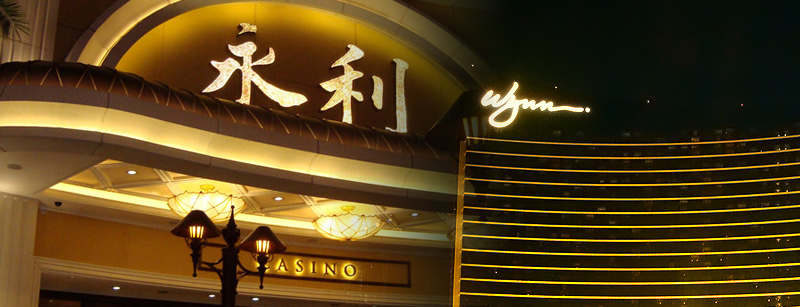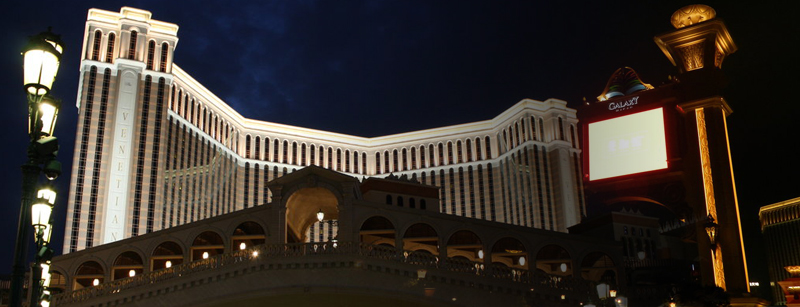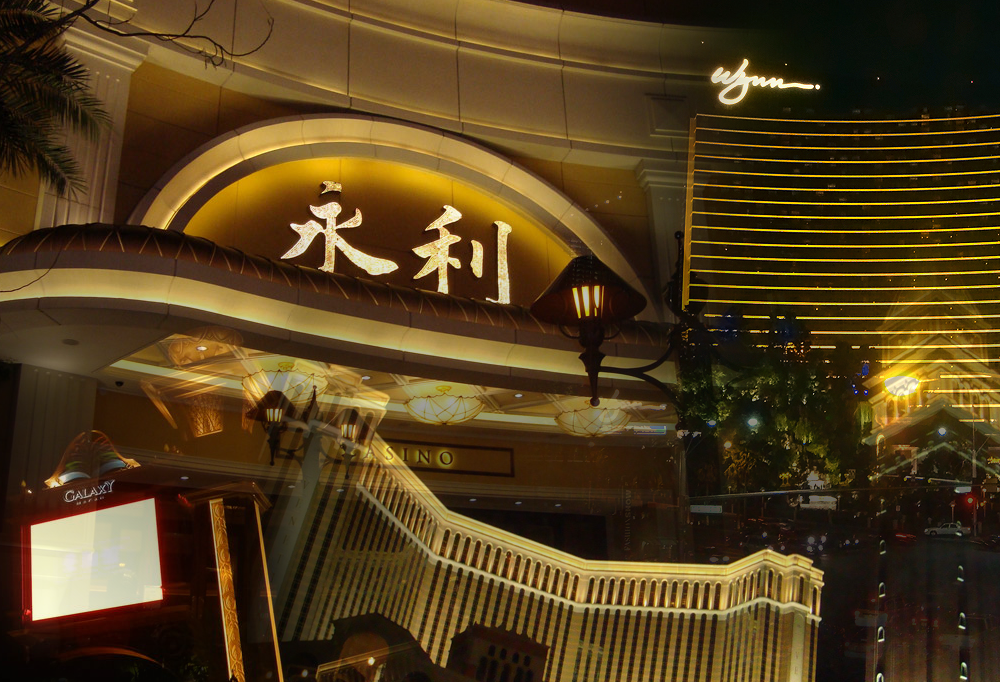![]() The Chinese island of Macau – the only place in the country where public gambling is permitted, and seemingly the only gambling jurisdiction driving the equity market over the last few months – continues to show fantastic growth. Analysts believe January will be a record month for gaming revenues on the island, as the Chinese New Year drove higher traffic to the island’s casinos. Given that Macau’s gambling market is already some five times larger than that of Las Vegas, and double-digit growth is again projected for 2012, this news further shows the importance of Macau to the gambling industry at large, and in particular the stocks of its six authorized operators.
The Chinese island of Macau – the only place in the country where public gambling is permitted, and seemingly the only gambling jurisdiction driving the equity market over the last few months – continues to show fantastic growth. Analysts believe January will be a record month for gaming revenues on the island, as the Chinese New Year drove higher traffic to the island’s casinos. Given that Macau’s gambling market is already some five times larger than that of Las Vegas, and double-digit growth is again projected for 2012, this news further shows the importance of Macau to the gambling industry at large, and in particular the stocks of its six authorized operators.
Going forward, it seems unlikely – or impossible – that the island can duplicate its recent growth rate (the 42% year-over-year increase in casino win in 2011 is projected to slow to a more reasonable 12-20% in 2012). But, as the business matures, new streams of profitability will emerge. The island’s emphasis on high-stakes VIP clients will diminish, as middle-class Asians are added to the client mix. 90% of the island’s revenues are driven by baccarat, and as new casinos (such as the Sands Cotai project coming online this summer) increase competition, operators will naturally diversify into other, lower-margin games such as blackjack, roulette, and slot machines. Non-gaming revenue on the island represents just 11% of total revenue, meaning hotel and casino operators should have the ability to grow food, beverage, and retail sales, particularly as the emphasis on high-stakes – and high win – customers decreases going forward. Continued strong growth on the mainland bodes well for the island, which looks set for years of growth, if not at recent levels.
Investors looking for exposure to Macau have a wealth of opportunities, from the six authorized casino operators to junket operators, who provide customers – and credit – for the island’s VIP rooms. Below are my three favorite stock picks for investors looking to gamble on Macau:
Wynn Gaming (US: WYNN) and Wynn Macau (HK: 1128)

Wynn owns the Wynn and Encore properties in Las Vegas, and properties under the same titles in Macau. The Macau subsidiary is directly listed on the Hong Kong stock exchange, though the US-listed parent company still owns some 72% of Wynn Macau’s outstanding shares. In a sign of just how critical Macau is to the fortunes of casino owners, Wynn Macau’s market capitalization – the market value of all outstanding shares – on the Hong Kong exchange is $14.1 billion USD. Wynn Gaming’s market cap on the NASDAQ is $14.9 billion USD. Wynn Gaming’s stake in Wynn Macau is worth, at current levels, over $10 billion, more than two-thirds of the total value assigned to the company by the market.
The stock was hit earlier this month by a lawsuit filed by Kazuo Okada, the company’s largest shareholder (a role he assumed after founder Steve Wynn and his ex-wife Elaine completed their divorce in 2009). Okada was disturbed by his inability to access company records, and in particular a $135 million donation the company made to the University of Macau. A week later, Okada nominated four new board members, escalating the tension. The stock dropped 5% on the initial news, but shrugged off the board fight and simply resumed its run-up from December lows, closing Friday at $119.07, up nearly 8% since the start of the year. As the Las Vegas Record-Journal noted, the board drama had echoes of Wynn’s exit from Mirage Casinos in 2000. That exit provided Wynn the capital to buy the Desert Inn, and eventually build Wynn Gaming. Nomura Securities analyst Harry Curtis told the paper the developments could, in the long run, “be positive for Wynn shareholders,” and over the last two weeks, the market has agreed.
In the meantime, both stocks appear to have solid growth prospects. Las Vegas gambling revenue and vistor traffic are improving, meaning that the market’s $4.8 billion valuation of the Wynn and Encore properties on the Strip may be a bit low. Wynn Macau offers a lower price-to-earnings ratio (about 15, compared to the parent’s 27) but there are some short-term questions about Wynn Macau’s ability to hold onto market share as the new Sands Cotai project opens and Wynn’s own Cotai project is years from completion, according to its most recent 10-Q. For US investors, the difficulty (and currency risk) involved in owning Wynn Macau directly on the Hong Kong exchange may lead to the safer, more diversified Wynn Gaming US listing. More aggressive investors looking for a pure Macau play can accept the (usually) higher commissions and higher risk associated with Wynn Macau stock. Both stocks are volatile momentum plays, both have been moving higher, and with the news out of Macau solidly positive for the last few months, each deserves a least a short-term flyer.
Asia Entertainment and Resources (US: AERL)

AERL is absurdly cheap by any measure, most notably its trailing price-to-earnings, which sits under 3 at Friday’s close of $5.79. Unlike other Macau plays, it has actually stalled out over the last few months, but is approaching long-term support at about $5.50/share, which would make for an excellent entry point for long-term investors.
What is keeping a lid on AERL’s valuation is clearly the fear of fraud at the company, which has been – so far unfairly – associated with Chinese reverse mergers, many of whom have caused huge losses for retail investors and lawsuits against the companies themselves. (Thursday’s raid of the offices of Benjamin Wey, one of the practice’s leading promoters, was one of the first law enforcement actions in the sector.)
In response, Lam Man Pou, the company’s chairman, told Reuters in July, “(E)verything is clear and transparent…Our balance sheet is real, our figures can be verified from casino owners.” The company’s chip turnover – essentially, the total amount bet by its clients – allows auditors to compare its own statements against those of its casino partners: global operators Las Vegas Sands and Galaxy Entertainment. As such, the possibility of fraud or illegal revenue and profit enhancement would seem lower at AERL than at any other similarly created Chinese companies.
The other issue facing the stock is the relatively opaque (some might say “shady”) nature of the junket business. Reuters reported in 2010 on the industry’s common links to organized crime, and later that year blogger Timothy Sykes wrote an interesting takedown of the stock. Like Reuters, Sykes emphasized the often shadowy nature of the business, which exists in large part to circumvent Chinese currency controls and the casino’s inability to collect on gambling debts under Chinese laws. The junket operators are exposed to the credit risk in attempting to collect from their clients, and some operators have used threats – and as the Reuters piece noted, outright violence – to collect their debts.
Add in the intense competition on the island, and there are real risks to the stock that, perhaps, justify its low valuation. However, the company is well-run; management owns a substantial amount of stock, aligning their interest with those of investors; and the company offers solid dividend potential. It paid out a 10-cent semi-annual dividend in September, with the promise of a raise for 2012. Those payments will equal 15% of the company’s adjusted earnings for 2011. Given that non-GAAP earnings were $1.50 per share for the first nine months of 2011, investors can expect in the range of 30 cents per share in dividends in 2012, giving a strong 5.2% yield. AERL is a high-risk stock, but at current levels it is clearly also high-reward.
